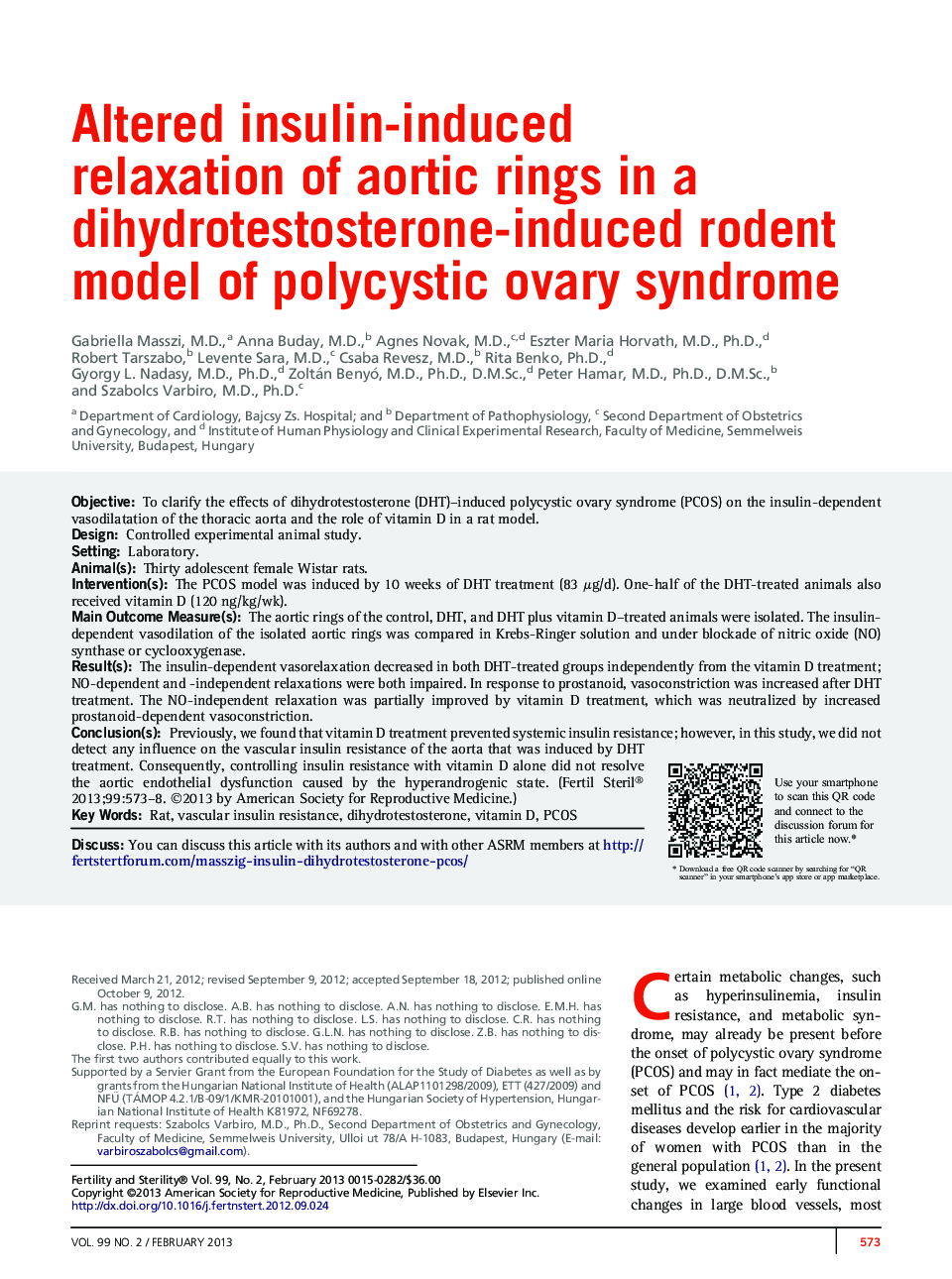| کد مقاله | کد نشریه | سال انتشار | مقاله انگلیسی | نسخه تمام متن |
|---|---|---|---|---|
| 3939504 | 1253560 | 2013 | 6 صفحه PDF | دانلود رایگان |

ObjectiveTo clarify the effects of dihydrotestosterone (DHT)–induced polycystic ovary syndrome (PCOS) on the insulin-dependent vasodilatation of the thoracic aorta and the role of vitamin D in a rat model.DesignControlled experimental animal study.SettingLaboratory.Animal(s)Thirty adolescent female Wistar rats.Intervention(s)The PCOS model was induced by 10 weeks of DHT treatment (83 μg/d). One-half of the DHT-treated animals also received vitamin D (120 ng/kg/wk).Main Outcome Measure(s)The aortic rings of the control, DHT, and DHT plus vitamin D–treated animals were isolated. The insulin-dependent vasodilation of the isolated aortic rings was compared in Krebs-Ringer solution and under blockade of nitric oxide (NO) synthase or cyclooxygenase.Result(s)The insulin-dependent vasorelaxation decreased in both DHT-treated groups independently from the vitamin D treatment; NO-dependent and -independent relaxations were both impaired. In response to prostanoid, vasoconstriction was increased after DHT treatment. The NO-independent relaxation was partially improved by vitamin D treatment, which was neutralized by increased prostanoid-dependent vasoconstriction.Conclusion(s)Previously, we found that vitamin D treatment prevented systemic insulin resistance; however, in this study, we did not detect any influence on the vascular insulin resistance of the aorta that was induced by DHT treatment. Consequently, controlling insulin resistance with vitamin D alone did not resolve the aortic endothelial dysfunction caused by the hyperandrogenic state.
Journal: Fertility and Sterility - Volume 99, Issue 2, February 2013, Pages 573–578